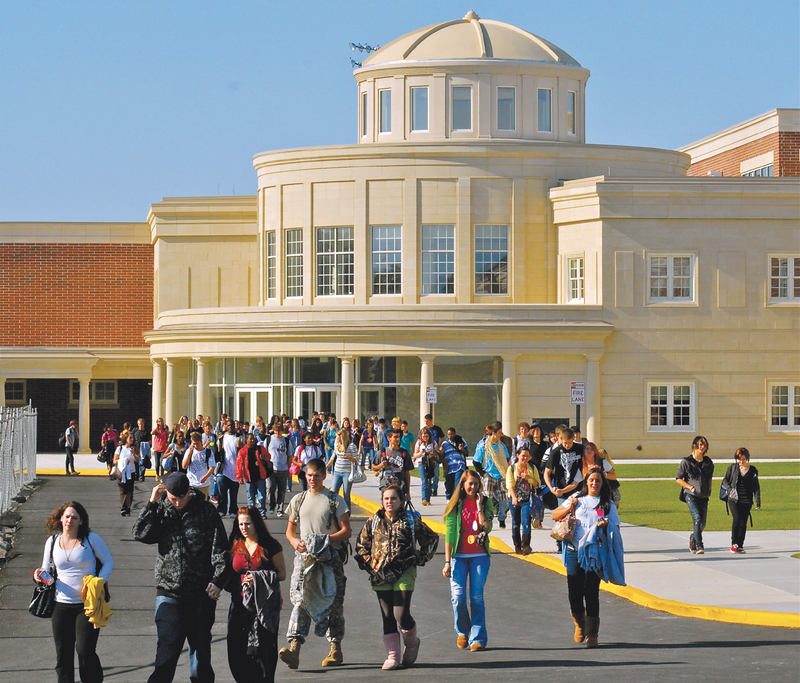Cape board calls for diversity at charters, Sussex Tech
Too many white students are leaving their home school districts for charter and vo-tech schools, resulting in resegregation of Delaware schools, a Sussex County school board member says.
Frank Parks, a Seaford school board member, says charter and vo-tech schools cherry pick top students from traditional school districts, leaving high numbers of minority students behind while creating an exclusive education for high-performing students.
“It's compounding the issue because it causes our test scores to suffer and our extra-curricular activities,” Parks said.
To combat what he sees as a rising tide of segregation, Parks drafted a resolution that aims to increase enrollment of minority and special education students, English language learners and those from lower socio-economic backgrounds in charter and vo-tech schools. Parks' resolution would require enrollment in charter and vo-tech schools to mirror the population of the districts that send students.
The Cape Henlopen school board unanimously approved the resolution during its March 13 meeting.
The Delaware School Choice Enrollment Reform Resolution states charter and vo-tech schools should resemble the communities in which they serve.
Rehoboth Beach resident Nelia Dolan, who has attended meetings aimed at improving diversity at charter and vo-tech schools, said the number of white students at the Sussex Academy of the Arts and Sciences far exceeds the county average.
“Considering what the charter school looks like in Sussex County, I'd rather not any more come to Sussex County,” Dolan said.
While Sussex County student population is about 24 percent African-American, only 2 percent of Sussex Academy students are African-American. Sussex Tech is somewhat closer to the county profile, but still, only 17 percent of students are black.
The gap is even greater for low-income students – 62 percent of the county students are considered low-income while Sussex Tech has a low-income students population of 33 percent and Sussex Academy has 18 percent.
Ready to cast her vote in favor of Parks' resolution, Cape school board member Jen Burton said, “I think this is a no brainer. ... I think we need to stand as a district to stop the nonsense that is going on.”
The full seven-member Cape board voted in favor of the resolution, including board member Noble Prettyman, who attended the March 13 meeting after an extended absence due to health reasons.
An effort requesting vocational schools accept more special education and other students who struggle in a traditional school and who would benefit from learning a hands-on trade is nothing new. In 2010, Sussex County school districts signed a resolution asking vo-tech schools to eliminate GPA requirements and other admission criteria that have resulted in excluding special education, low-income and other student populations that would benefit from vocational training.
As school district administrations changed, that measure was laid aside, but Cape board member Sandi Minard requested the school board revisit the 2010 resolution.
“I'd like to see our district bring the resolution back for discussion,” she said. “Sussex Tech needs to service more students who would best be served by vo-tech education.”
So far, Cape, Seaford and Christina school boards have voted in support of the resolution, Parks said.
He said he expects more school districts to approve the resolution as boards hold their regularly scheduled meetings throughout the month.
In Seaford, he said, he knows of students who have tried to get in to Sussex Tech, but they were never put in the lottery for admission because they did not have a 70 percent average in all four content classes – Sussex Tech's admission requirement for incoming students.
As an added insult, Park said, students who are kicked out of Sussex Tech for academic or disciplinary reasons return to their home districts after the Sept. 30 unit count. That means, state education funding distributed to schools based on student enrollment stays at Sussex Tech even though the students are no longer there, he said. Parks said he knows of three instances at Seaford in which that has happened.
Rep. Ruth Briggs-King, R-Georgetown, said in a previous interview she has heard similar complaints.
“Tech can send students back to their home districts, and if it's after Oct. 1, then the money stays at Tech,” she said.
Melissa Steele is a staff writer covering the state Legislature, government and police. Her newspaper career spans more than 30 years and includes working for the Delaware State News, Burlington County Times, The News Journal, Dover Post and Milford Beacon before coming to the Cape Gazette in 2012. Her work has received numerous awards, most notably a Pulitzer Prize-adjudicated investigative piece, and a runner-up for the MDDC James S. Keat Freedom of Information Award.
























































